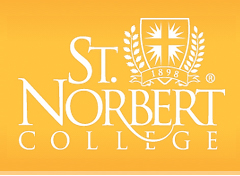What (if Anything) Is Wrong With Economic Inequality?
Location
Fort Howard Theater, Bemis International Center, St. Norbert College
Start Date
3-30-2017 7:00 PM
Description
Economic inequality in America has grown significantly in recent decades, pausing briefly during the Great Recession and resuming its upward trend during the recovery. Some, such as Pope Francis, see growing inequality as a great evil. Others see it as the natural result of a growing and innovative economy, and dismiss concern with it as the product of envy. In his Killeen Chair Lecture, Professor Paul Weithman will look at the metrics and the data of economists who study economic inequality. He will also look at the reasons that philosophy and theology provide for worrying about the economic inequality that characterizes the present-day United States.
What (if Anything) Is Wrong With Economic Inequality?
Fort Howard Theater, Bemis International Center, St. Norbert College
Economic inequality in America has grown significantly in recent decades, pausing briefly during the Great Recession and resuming its upward trend during the recovery. Some, such as Pope Francis, see growing inequality as a great evil. Others see it as the natural result of a growing and innovative economy, and dismiss concern with it as the product of envy. In his Killeen Chair Lecture, Professor Paul Weithman will look at the metrics and the data of economists who study economic inequality. He will also look at the reasons that philosophy and theology provide for worrying about the economic inequality that characterizes the present-day United States.

